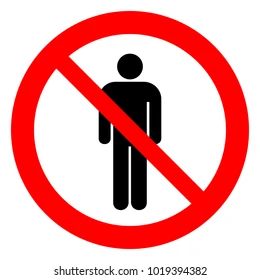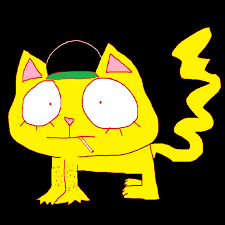A book review of Mosquito land by David Arnold: Spoiler Warning!
Before I start, I want to say that I do not speak for people with disabilities, or individuals with anxiety and psychosis. While I will touch on these topics because I think they are important to fully understand why I dislike the book, I don't have the environmental context to fully understand the experience of people with disabilities. If I say anything out of place, please let me know so I can step down and be better!
David Arnold’s Mosquitoland tells the story of 16-year-old Mary Iris Malone (Mim), a young woman who runs away from her father and stepmother after finding out her biological mother is sick and dying in Cleveland. During her trip from the “wastelands of Mississippi” back to her homeland of Ohio, she meets a gaggle of exciting characters, including Beck, a photographer, and Walt, a homeless boy with Down Syndrome.
Just in case some people aren't familiar with this term, I want to first establish the trope of the “manic pixie dream girl.” The “manic pixie dream girl” is when a female character is portrayed as very quirky, eccentric, and different. They are almost always the love interest of the male lead, and are designed to give the male protagonist motivation, or to provide emotional support. The characters are often one-dimensional, and have little to no personality. MPDGs aren't always bad, it's just a trope that's overused and something to take into account when reading and writing female characters.
Mim is an example of a manic pixie dream girl protagonist that has a few more thoughts in her head, however still conforms to the trope. Given that the book was written from Mim’s perspective, we were always in her head, so most of the book was her internal monologue. Mims character was portrayed in a way that made her seem quirky, but it felt as if all her actions were repeated, her attitude always the same. Her constant thought process of “You know what, screw the world. I'm going to go do something inappropriate or pretentious in public because I'm not like other girls” got more and more cringey each time, and I slowly began to suffer extreme second hand embarrassment. She was written with the intent to come off as a thoughtful, innovative, and mature person, but she seemed pretentious and not fully rounded as a character. While Mim was the protagonist in this story, and had multiple character arcs, she reads like a collection of quirks and complaints rather than a fully developed person.
A huge plot line in the book is the fact that Mim suffers from psychosis and anxiety, which proves to be a struggle in multiple aspects of her life. She decides to ditch her medication because it makes her “more Mim.” Part of the reason this annoys me is the fact that her psychosis is displayed as more of a quirk than a mental illness. This depiction and minimization of the true struggles that come with psychosis is a misrepresentation of reality, and potentially offensive to individuals who have firsthand experience with psychosis.
If all that wasn't enough, Mim is also romantically involved with a 21-year-old at 16. This is where I start to get more extensively upset at the author. When writing for a YA audience, depicting romance between a minor and an adult is risky business. Beck, the 21-year-old love interest does state that he is too old for her, but it's heavily implied he has romantic feelings for her despite the age gap. I believe the author made Beck older to emphasize Mims difference in mental age, how she was more “mature.” In my opinion, I think it's a little odd for the author to write a story about a mentally ill girl…who’s in a very vulnerable situation…who falls in love with an older man that holds a lot of power over her…I don't know about that. When writing about pedophilia, or pedophilic relationships, its importance to distinguish between raising awareness and romanticizing power imbalance between a minor and an adult. In this case, David Arnold failed to make that distinction.
Last but not least, the depiction of Walt. He is a homeless kid, the same age as Mim, (I repeat, the same age) that has down syndrome. Walt’s character is often written to appear innocent, and Mim refers to his “childlike innocence” many many times. Beck and Mim take the role of his parents, which again, Mim and Walt are the same age. There is one scene in particular that irks me. During labor day, Walt comes down with a fever. All the clinics are closed, so they take him to a vet. Let me repeat that. Two non-disabled people take their disabled friend to the vet. Later in the car, Mim and Beck talk in the car while Walt is sleeping, and this conversation takes place:
“Beck smiles down at [Walt, who’s asleep in the backseat of the car]. ‘We totally just took Walt to the vet.’
‘Yeaaaah, to be fair, he is kind of our pet, though.’
We laugh because we love.”
…Yeah!
In the book, they portrayed Walt as a child, or a pet, rather than a person. It annoyed me the whole book how they patronized him, treating Walt as “less than.” David Arnold was writing Walt to be a child character, someone to bring Mim and Beck together, someone to complete their found family. In my opinion, rather than making a patronizing and awkwardly maternal dynamic in the book between people the same age, Arnold should have just made Walt a child and kept the character the same.
I hate this book. Somebody sedate me. Thanks for reading!
Love, Olive


I think many authors fall into kind of tropey plots in an attempt to create something familiar and easy to write. There's something deeply fascinating with introspective books which draw parallels with our own lives as authors create nuanced and relatable characters. It makes me curious if the intent of the book is to malign the actions of the main characters, or simply inappropriate writing on the account of the author. In any case, thanks for your view, this was an interesting post.
ReplyDeleteThis article is so well articulated. I love the way you described Manic Pixie Dream Girl. I had personally never heard the term before but after you explained it I can totally pinpoint a MPDG in many of the novels I have read. Also, I totally agree with your points about authors writing relationships like the one between Beck and Min. I really dislike when books romanticize unhealthy relationships. Thanks for this review, I probably will not be reading this book any time soon.
ReplyDeleteUhm, excuse me. First of all, what. This book sounds like an utter disaster from the way you put it. Second of all, so many authors follow the same line of thought when thinking of female protagonists, typically having them get lumped into the "manic pixie dream girl". And even though it's supposed to be a story of overcoming struggles, whether it be a huge obstacle lying in your path, romantic issues, or, as in the book, mental disabilities. I feel that it's a bit of a problem, and instead of depicting the female protag. as a strong, empowering adolescent, it comes off as needy, quirky and pretentious.
ReplyDeleteBut anywho, thanks for the heads up, and I think I might read it for the sheer atrocities you've mentioned.